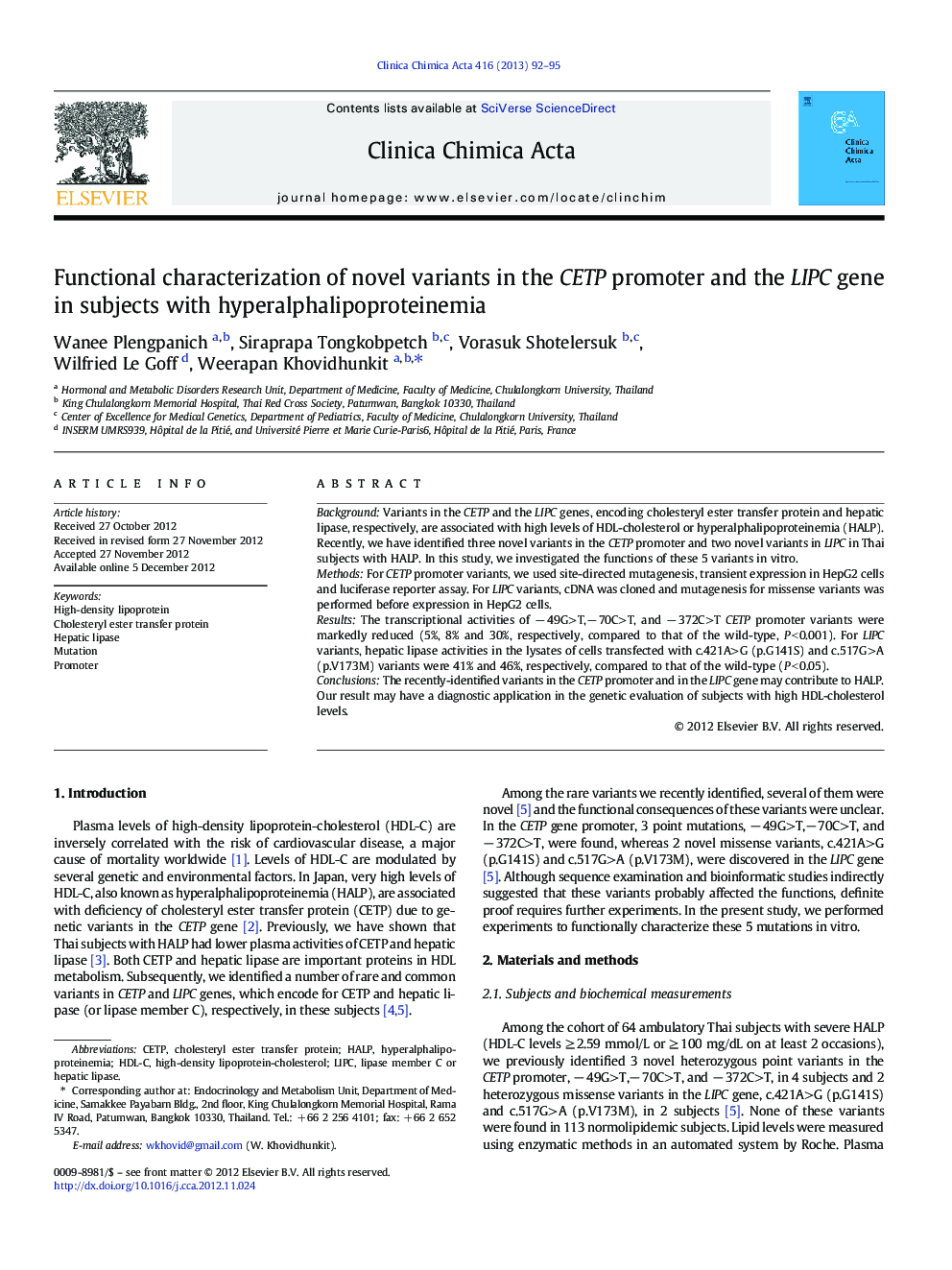| Article ID | Journal | Published Year | Pages | File Type |
|---|---|---|---|---|
| 1965783 | Clinica Chimica Acta | 2013 | 4 Pages |
BackgroundVariants in the CETP and the LIPC genes, encoding cholesteryl ester transfer protein and hepatic lipase, respectively, are associated with high levels of HDL-cholesterol or hyperalphalipoproteinemia (HALP). Recently, we have identified three novel variants in the CETP promoter and two novel variants in LIPC in Thai subjects with HALP. In this study, we investigated the functions of these 5 variants in vitro.MethodsFor CETP promoter variants, we used site-directed mutagenesis, transient expression in HepG2 cells and luciferase reporter assay. For LIPC variants, cDNA was cloned and mutagenesis for missense variants was performed before expression in HepG2 cells.ResultsThe transcriptional activities of − 49G>T,− 70C>T, and − 372C>T CETP promoter variants were markedly reduced (5%, 8% and 30%, respectively, compared to that of the wild-type, P < 0.001). For LIPC variants, hepatic lipase activities in the lysates of cells transfected with c.421A>G (p.G141S) and c.517G>A (p.V173M) variants were 41% and 46%, respectively, compared to that of the wild-type (P < 0.05).ConclusionsThe recently-identified variants in the CETP promoter and in the LIPC gene may contribute to HALP. Our result may have a diagnostic application in the genetic evaluation of subjects with high HDL-cholesterol levels.
► Novel variants in the CETP promoter and the LIPC gene were recently identified. ► Three CETP promoter variants were associated with reduced transcriptional activities. ► Two missense LIPC variants were associated with reduced hepatic lipase activities. ► These variants likely contribute to high HDL-cholesterol in these subjects.
